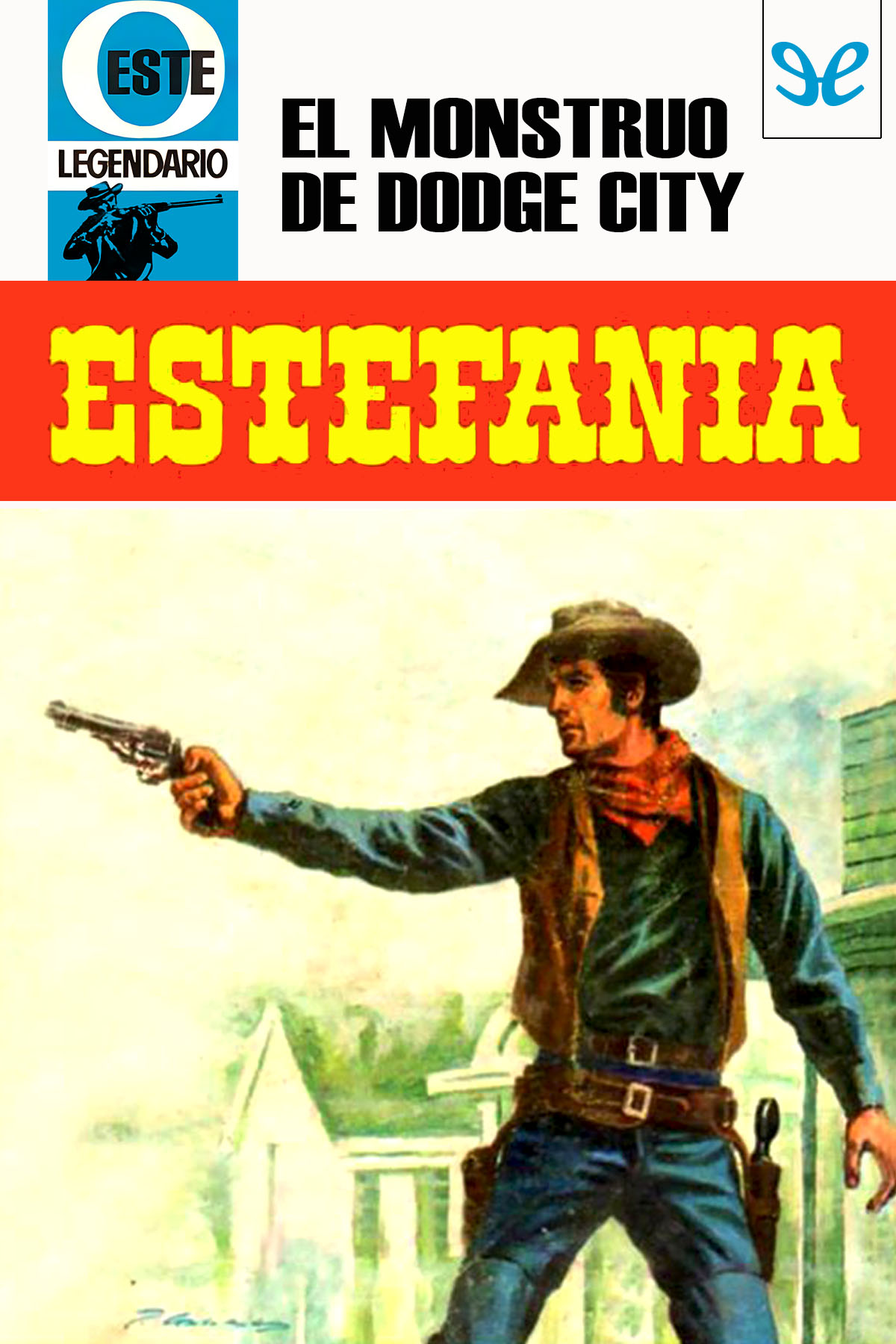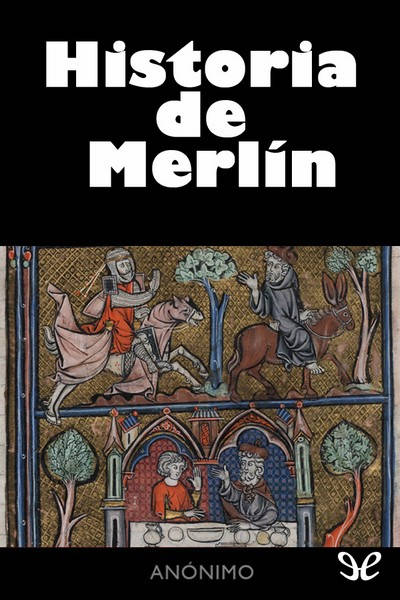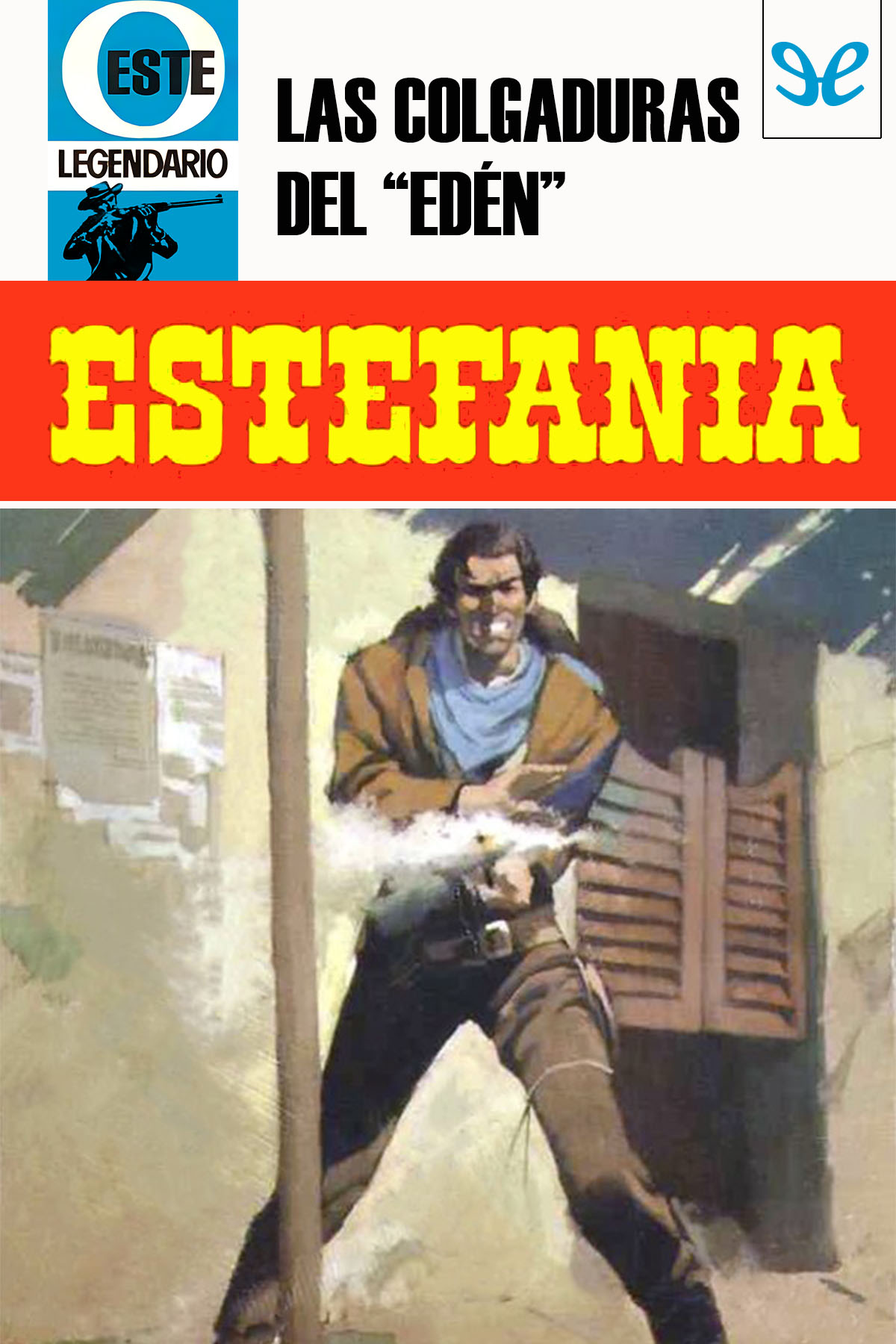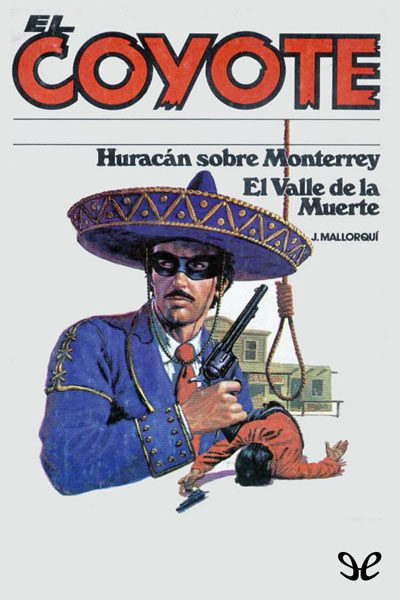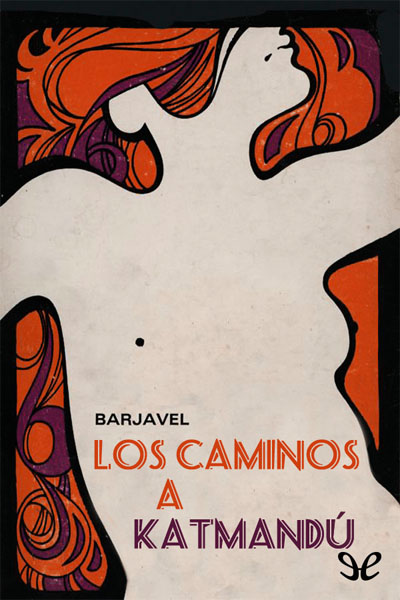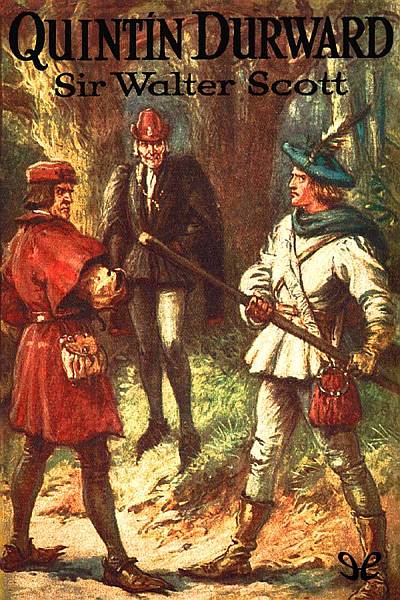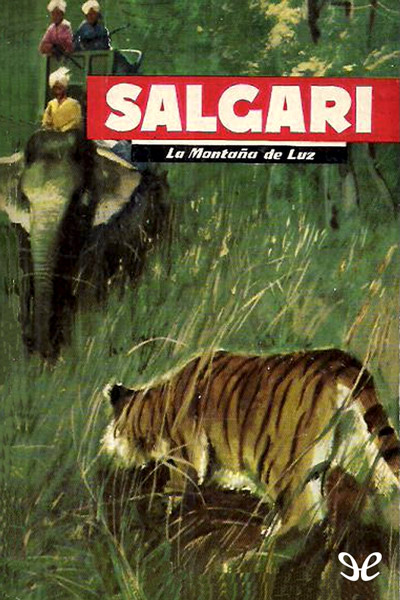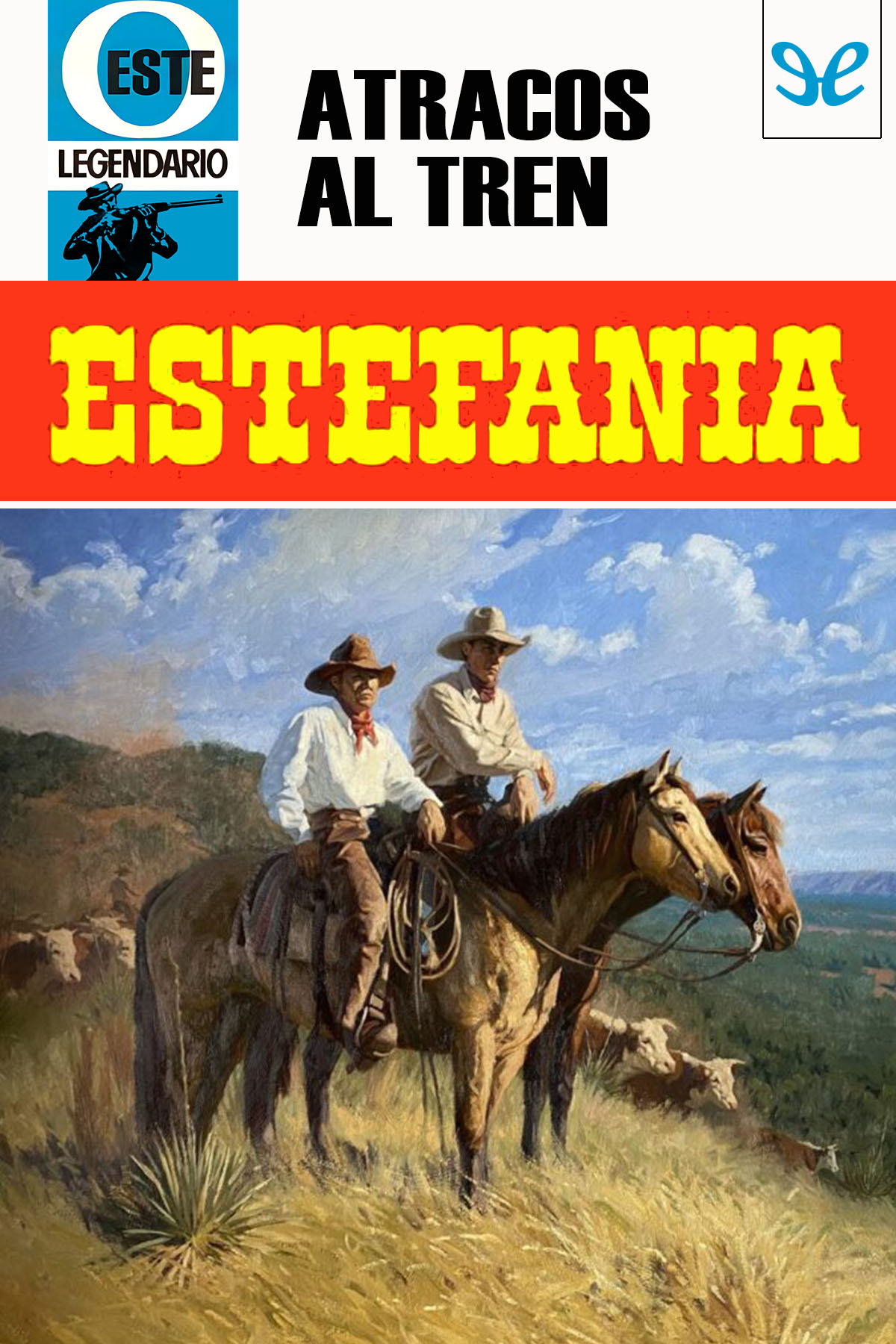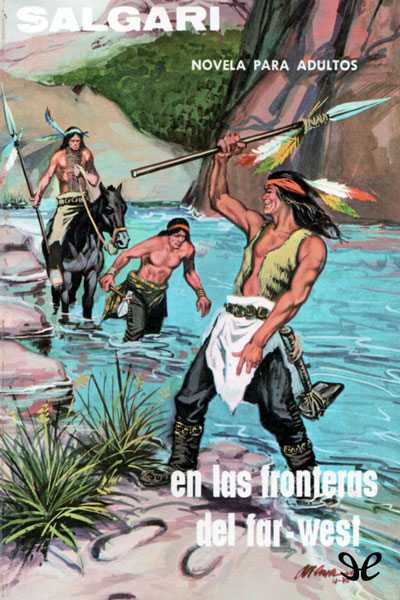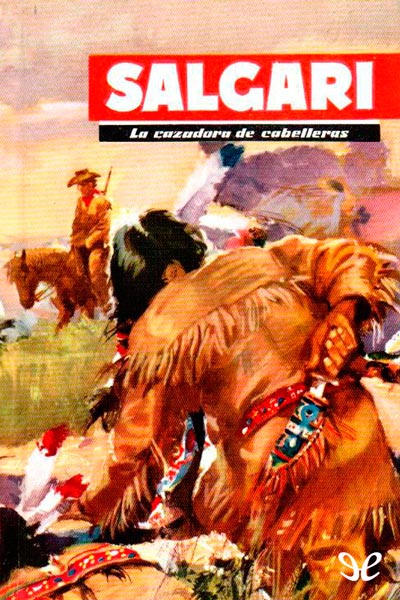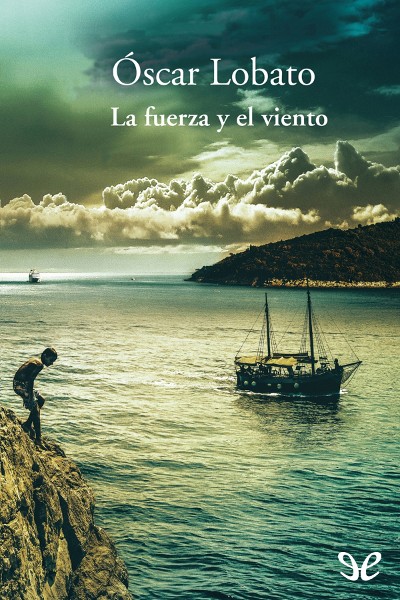oleebook.com
Tan lejos como los pies me lleven de Josef Martin Bauer
de Josef Martin Bauer - Género: Aventuras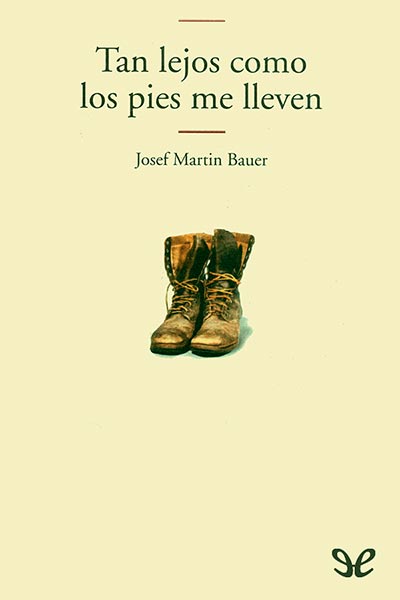
Sinopsis
«Lo que Bauer nos ha dejado no es un simple relato de prisioneros de guerra. Es una de las narraciones de aventuras más imponentes jamás escritas». Die Welt.Éste es el relato de una aventura extraordinaria, de una auténtica odisea terrestre: la fuga de una de las prisiones más inhumanas a las que se ha visto sometido jamás un ser humano, las minas de plomo siberianas.Sin embargo, la huida conduce a su protagonista, Clemens Forell, a una prisión igualmente tremenda y quizás incluso más peligrosa, la inmensidad de la estepa, donde Forell conocerá el frío de la tundra, el hambre, los lobos, el miedo, pero descubrirá también el límite de la resistencia humana durante 14.000 kilómetros de periplo.Tan lejos como los pies me lleven ha sido leída muy a menudo como una novela, como una espléndida y emocionante novela, porque lo que anima al lector no es tanto la cuestión de la veracidad de la historia que se le cuenta sino saber qué pasará en la página siguiente.Y sin embargo, todo en ella es histórico.
Libros Recomendados - Relacionados
Reseñas Varias sobre este libro
??????? ???? ????? ???? ?????? ?? ?? ?????? ???? ??????? ??? ???? - ?????? ???? ?? ????
??? ?? ??????
?? ???????? ?? ???? ??????? ?? ???? ?? ??? ???? ???? ?? ?? ?? ? ??? ??????? ???? ???? ???? ?????????? ?? ???? ???? ?? ????? ??? ???????. ??? ?? ????????? ????????? ???? ??? ?? ???? ??????? ????? ?? ??? ???? ???? ?? ???????? ???? ?? ??? ???????. ??? ???? ?? ?? ?????? ???? ??? ?? ??? ?? ????? ??????? : ????. ??? ???? ???? ??????? ???? ?? ??????? ??? ?????? ?? ????? ?? ???? ???? ???. ?????? ? ???? ?? ????? ??? ?? ??? ?????? ?? ???? ?? ???? ???? ?????? ????? ? ???? ????? ???? ??? ????? ?? ????? ?? ???? ???? ? ?? ?????? ???? ???? ?? ??? ?????? ????? ???? ? ????? ????? ????. ????? ????? ????? ???? ?? ???? ?????? ?? ??????? ??? ?????? ?? ?????????? ???? ???? ???? ???? ?? ?????????? ?? ??????? ?? ???? ???? ??? ? ?????? ???. ???? ?????????? ? ?? ???? ?????? ???????. ???? ?? ??? ??? ?? ??? ???? ?????? ??????? ?? ?????????? ???? ?? ???? ??? ???? ?? ?? ??? ??????? ?? ???????????? ????? ? ??? ??? ???? ?????? ?? ???? ???? ?? ???? ????. ???? ?? ????? ? ???????? ?????? ???? ??? ?? ?? ??? ?????? ?? ????? ???? ?????? ??? ????? ???????? ????? ? ???? ?????? ???. ??? ?????? ??? ??? ??????? ????? ??? ??????? ?? ???? ?? ?????? ??????? ?????? ??????? ???? ?? ???? ?????? ???? ?? ????? ??????? ???? ?? ??? ????? ??? ??? ??? ???????? ???? ?? ????? ???? ??? ??
#??????????_??_??????30 s Mahdi Lotfi447 116
??? ?? ???? ?????? ? ????? ?????? '?? ???? ??????' ?? ??? ????? ??? ???. ?? ???? ????? ???? ?? ?? ???? ???? ?? ???? ????? ?? ???????? ??? ????? ?????? ? ?????? ?? ????? ???? ????? ????????. ??? ?? ?? ????? ????? ?????? ???? ?? ????? ?????? ? ??????? ???? ?????? ????? ???? ??????? ???? ?? ????? ????? ?? ?? ??? ?? ??? ??????? ? ?? ???? ??? ???????.
????? ??? ?? ????? ???? ?? ? ????? ?????? ?? ??? ???? ??? ? ???? ???? ????? ?? ? ?? ??? ????? ???? ??????? ?????? ??????? ????? ? ??????? ????? ?? ???? ????? ?? ? ??? ?? ???? ??? ????? ?? ????? ?? ????? ???? ????? ???? ?????? ?? ???? ?? ????? ?????? ? ?? ?????? ?????? ????? ????? ?? ???? ??25 s Jessaka952 186
I had mixed feelings bout this book. While it was always interesting, it was not a book that I could not put down. Still, it caused me to think a lot about the human condition. Not that I had any new thoughts about it.
A German was being held as a prisoner of war in a Russian mining camp. All prisoners lived in the mines where they mined lead, and they contacted lead poisoning and knew it. Even their prisoners knew that this was happening, but the cruelty was not just hte lad poisoning. I thought back to the book, "The Iron Rooster," and how in the 80s the Chinese shot those who had committed crimes, and it didn't matter how little the crime was. They were getting rid of those who were bad for society. Yet, in both of these cases, the Russians and the Chinese, those in charge were far more evil than those in prison. It happens everywhere; it is the human condition. It is the desire to see people punished to a greater extent than deserved. It is those who believe in hellfire or karma because, well, they too, desire people to be punished. Even those in America are becoming more brutal than in the past, or is the past just catching up with us?
So, this man in this book, had done very little to be imprisoned. And when he escaped, I felt cheerful.
The people on theoutside of the priSon were much more kind towards him, even inviging him into their homes, often knowing that he was an escaped prisoner.
Do the the hospitality of the Russians, it took hm three years to get to the boarder. The warmth and kindness of strangers made this book remember-able and pleasant to read.non-fiction14 s Sergio1,144 82
La letteratura e il cinema hollywoodiano ci hanno raccontato le rocambolesche fughe dei soldati alleati dai lager nazisti della seconda guerra mondiale, ma stavolta un libro racconta l'impossibile fuga di un soldato tedesco, prigioniero dei Russi in una sperduta e micidiale miniera di uranio che, alla morte certa, preferisce l'avventurarsi in una terra sconosciuta, munito solo dell'essenziale per non morire subito e della sua caparbia volontà di sopravvivere e di cercare l'ovest, la patria, la libertà. Una storia avventurosa che lascia senza parole, bella da leggere, da consigliare e da ricordare negli anniscrittori-tedeschi seconda-guerra-mondiale13 s Nadia74 16
? ??? ????? ???? ? ?????? ??????
????? ?? ????? ?????? ?? ?? ????? ???? ????? ?? ??? ? ?? ??????? ??? ?????? ??????? ? ????? ???? ??? ?? ??? ??? ????? ?? ???? ? ???? ??? ?????? ?? ???? ?? ??? ? ?? ??? ???? ??? ??? ??? ?? ??? .
???? ????? ?? ?? ?????? ????? ???? ????? ????? ????? ????? ?? ??? .
? ??? ?? ?????? ?? ??? ?? ???? ????? ???? ?? ? ??? ???? ?? ??? ???? ???? ????? ?? ???? ????? ???? . ?????? ????? ???? ????? ???? ???? ???5 s ^907 58
This book had been sitting awhile in my bookcase, when after recently watching the Polish film (fictional) The Way Back (2010), I was reminded of Bauers book.
There is a b/w photograph on the back cover, showing the back of the principal protagonist, Clemens Forell (an alias), who faces the author and his publisher. To modern eyes the image appears stiff, staged and ill at ease; but taking a moment to consider 1940s and 1950s film technology, that may just be normal for the period.
Descriptive writing such as walking skeletons. Their skins were blotched and yellow with jaundice, their legs and feet perpetually swollen (p.160) left me assessing fundamental questions about mind and muscle, the sharpening of the senses, and the ability to think quickly (or not), to assess probabilities, and about the nature of what we call luck. This book describes, in varying detail, such an extraordinarily long journey through such dauntingly hostile terrain. I have no remotely comparable personal experience to relate it to.
Wikipedia [http://en.wikipedia.org/wiki/As_Far_a...] casts doubt on the veracity of the As Far As My Feet Will Carry Me; whereas the New York Times review of the 2001 film [http://www.nytimes.com/movies/movie/2...] is more subtle in planting the idea that perhaps a story can grow into the role of an epic of war. After all, I pondered, surely no-one reads Beowulf as true fact?
Laying aside the niggling question of fact or fiction, or whether a knit & purl of both, I had picked up the book late one evening, started to read and pretty much immediately wished for a map showing the route of the escape. However, it wasnt until pages 80-81 that I found what I sought!
There being no chapters in this book (just periodic * * * type line breaks), I had earlier raged that the publisher (Andre Deutsch) had deemed it unnecessary to include anything as useful as an index! Yet in not knowing what comes next, the lack of formal division into chapters curiously acts to deepen the almost unimaginable sense of the sheer length of Clemens Forells highly dangerous three year and 8.000 mile journey. That sense is reinforced by that very absence of division. But I found it discombobulating to have read through four-fifths of this book, only to find that a mere quarter of the map had been traversed!
On occasion the translator charmed me: He blew his nose and then began to gesticulate with his bare hands, conveying his meaning with such skill that when he paused now and then to reflect, it seemed to be his fingers that were thinking what they should say next. (p.104). Survival is not only a matter of knowledge and some luck; it becomes a matter of heightened senses, and ultimately of instinct. Throughout, the action fully held my attention. There are no dull edges here; even if on the odd occasion my mind insisted returning to question what had filled those later gaps in the timeline of this very long walk. Sheer boredom? Hallucination? Illness? Nothing new to say?
Page 168 caught me out. Recently I read and very much enjoyed a British childrens book, The Grange at High Force
[https://www.goodreads.com/book/show/2... which contains very funny descriptions of the difficulties of walking in snowshoes! The stark contrast of the necessity of rapidly learning to use snowshoes, so as to survive a Siberian winter, was almost too much. I had to close As Far As " & lay it aside until I had sobered up.
To say that I enjoyed this book wouldnt sound right. I dont 'enjoy' man's inhumanity to man. Ill keep it; despite my initial irritation over the publishers disinclination to declare upfront honestly whether the narrative is fact or fiction, or both. Its a salutary reminder that war is not ended by generals.
author-male books-with-1001-to-10000-ratings first-edition ...more6 s Scott240 8
You know those really good story tellers. The ones where you can listen to anything they're talking about. They can make the most banal story interesting. Well that is what this story is missing. The author is pretty lame. It feels somebody droning on and on with the same voice of the guy who says "Bueller." There is probably around 50 or so pages that is actually enjoyable. The rest of it is just not that good. The 50 pages that I d were when the escaped prisoner joins up with 3 other escaped convicts and their adventures together. Those pages were filled with adventure and were gripping. The thing I least about the book is the writing. It is pretty bad. This could have been a much better book if someone else had written it. There was no build up. There was no urgency. I mean a German prisoner of war escapes from the far eastern portion of Siberia and makes it thousands and thousands of miles to Europe. That really happened. That's freaking epic. The whole escape story is epic...but this book doesn't do his story justice. 6 s Johann Manstein33 3
I am not one to criticize the authors experience or willingness to share his escape. I was engrossed in the book and constantly referring to encounters with the map. I grew alarmed as 4/5 of the book had been covered and approx half of the Soviet Union had been crossed. This left me disappointed in that I was given the impression that half of that journey was 'boring' for the lack of a better word. When he returned ragged and starving to the Jew that eventually helped him escape, it seemed to me an interesting segment of history could have been revealed. My guess is that at this stage the author was so traumatized from his experience that the last half of the map covered in hos travels simply did not register as firmly as the first. In this respect, he has every right to be accorded whatever latitude he needed in recalling the epic of his lifetime.5 s Benjamin Sigrist163 2
The best adventure story I have ever read. Need some courage? Read this book.5 s Drew238 123
Pretty gripping. Basically a German prisoner of war escapes from the Siberian lead mines and walks halfway across Russia, with all the adventure that that entails: wolves, bears, outlaws, reindeer men, etc. And better written than I expected, though that's probably because I didn't know that Josef Bauer was a real writer. But at times I wondered whether everything I was reading was true. For instance, at one point the main character falls in with some Russian outlaws, and together they basically re-enact the plot of The Treasure of the Sierra Madre, right down to the little baggies of alluvial gold, betraying and murdering each other out of greed. And it was just so incongruous with the rest of the plot that I had to wonder. 4 s Pe?ivo482 173
Toto je kniní verze písn? od Jana Kalouska, ve kterým zpívá e el, el dál bejby. Víc k tomu asi není co dodat.
6/10 - nacistický zajatec, v mé hlav? ho hrál Martin Dejdar - v N?mecku známy jako Martin Gibgeschenk - ute?e po konci druhý sv?tový z lágru na Sibi?i a t?i roky jde více mén? p?ky dom? do Bavorska. Cestou toho spoustu zaije, ale nic a tak zásadního, e bych to zde cht?l uvést. ?tení to bylo úd?sn? dlouhý a jestli to m?lo symbolizovat monotónní cestu, tak se to velmi povedlo. Gratulki.
Jdu se zeptat po sousedství jestli to není n??í d?da. Kdytak hodím selfí?ko. Heteg Johny Walker.
2 s Rubén Vilaplana206 14
Entretenida y muy sufrida, la odisea del oficial Forell como prisionero de guerra y una huida que le obligará a cruzar toda Siberia si quiere llegar a su Alemania natal.
Muy bien escrita y con unos pasajes realmente increíbles, descripciones que te ponen los pelos de punta. Además de contarte la situación en la que estaban los presos alemanes trabajando en las minas de plomo, también cuenta como era la vida de las gentes siberianas y lo duro que era vivir en condiciones extremas donde la mayor preocupación era la supervivencia misma.
Totalmente recomendable. 2 s ? Marlene? 1,688 142
A really good survival book. A German prisoner is brought to the very east of Siberia together with many other prisoners of war to be a slave. He gets help from a doctor to escape and then the story gets really interesting. All the struggles he had to endure, it is hard to comprehend even after reading this book.
I really enjoyed reading it. Loved his dog. Wished that the end had been a bit more prolonged though. non-fiction survival travel2 s Taylor55 2
This was a great book! Perhaps I d it because it was so similar to one of my all time favorites, The Long Walk, by Slavomir Rawicz. When I finished, I was left wishing it were longer, with more details about the last year of the journey, and what happened after he returned home. But these limitations made it more intriguing.2 s Toby Tsoutseos27
The truth often wilder than fiction
The book describes the long journey of a war prisoner to freedom. From the East end of Siberia to Tehran. The author paints the events with details and dialogues helping the narrative of the underlying story. The events taking place in the journey and the devine Providence or Deus ex machina often saves the day via simple persons coming on the way. It made me admire the patience and strength a man can have when he wants to survive. I also found very interesting the way of living of tribesmen and village People in the vast Siberian land where time and space is different to the Western understanding.biography russia war1 John Shedd59 1 follower
Fantastic story of enduring hardship and a seemingly improbable escape. As others have, I found myself wanting more information at the end of the story. It was somewhat troubling to discover that the accuracy of the story is in question, but still a great read. 1 Bounty7
Ich habe mich noch nie mit dem realen Schicksal von Kriegsgefangenen auseinandergesetzt. Sehr ergreifend!1 Ann281 2
A very compelling story. I enjoyed the writing, though a few parts were disjointed. I would have d a little more of an ending.1 Les Christian4
I read this book many years ago. I think it is excellent, not just for the way it is written but also for the incredible story of one man's triumph over numerous incredible difficulties.1 Dave366 1 follower
Boringly average. There may be a good story in there somewhere, but not by this author1 B67
Ein Buch, was mich seit längerem mal wieder gefangen genommen hat. Die alte Sprache, die Umgebung waren anregend um sich hineinzuversetzen.This entire review has been hidden because of spoilers.Show full review Frederick174 4
Human endurance and drive can never be over rated.
1 Kelley491 10
Last week, it was sci-fi catching me off guard (Enders Game). Now Ive found the survival genre to be more than I presumed, too.
In this 60-year-old book, Bauer tells the story of a German prisoner of war sentenced by the Soviets to 25 years of hard labor in a lead mine in the farthest eastern corner of Siberia. The first third or so covers Clemens Forells time as a prisoner. The rest is an excruciating three-year journey of 8,000 miles much of it on foot, in a climate so extreme that fishing was risky in the summer because the ice might be thin enough to crack from your weight.
Bauer doesnt mince words in his introduction: He found Forells story impossible to believe when he first heard it. But he said each time he followed a fact back to its origin, Forrell was vindicated. (Full disclosure: Contemporary research has cast some doubt.) Bauer had to recreate conversations as they must have been, obviously, but he and Forell agreed that the end result captured the journey as Forell remembered it.
There are stolen hours on a train and extended stays in lonely outposts, with native people who dont ask too many questions or are sympathetic to Forells answers. But countless weeks after freezing weeks, Forrell is alone with his meager pack, walking across Siberia, trying to avoid civilization and, with it, re-arrest.
The story is everything. The writing, translated from the original German, is spare and utilitarian. But it feels right for this purpose.
I was disappointed that Bauer wrapped up within a page or two of Forell finally crossing over the border of the USSR. He zips him home on a plane, mentions in one sentence his concerns that his wife will find him changed and the book is over. I wanted a lot more I was invested in his situation by then. While I was glad for the haircut and new clothes, I had dozens more questions about life after his ordeal. But Bauers story was finished.
Forell is not his real name he insisted Bauer change it before agreeing to tell his story, saying he feared repercussions from the KGB. A few decades later, his real identity was revealed. And later still, the recordings of his original interviews with Bauer were found. Modern research has identified several crucial errors in the story. The most important two, probably, are that no labor camp existed in the location where he said he was at the time he said he was there, and that Russian records report he was released two years before his escape began.
I dont know. I hate finding things that out after the fact. Could he have been mistaken about the location of the camp? That ones easier for me to accept than the matter of his release two years before he said he had to escape. But then Im wondering if he was released on paper only to be taken to the labor camp? No ones ever accused the Soviet Union of scrupulous attention to human rights and/or honesty.
Still, the conflicting details fan my initial this-cant-possibly-be-true feelings about other aspects of the story. Feelings I tamped down because Bauer told me from the beginning that he felt that way, too, but his research backed up Forells account.
As a book, its more engaging than I expected. As a record of the past, its a frustrating mystery. I dont the uncertainty, but Im still not sorry for the read.
Nihils76 7
Ach ja, deutsche Bewältigungsliteratur ...
Mal ganz abgesehen davon, dass die dereinst Josef Martin Bauer aufgetischte Fluchtgeschichte des Mannschafters Cornelius Rost zu weiten Teilen erstunken und erlogen war, kann die Lektüre dieses Klassikers der deutschen Nachkriegsliteratur über weite Strecken nur als Graus bezeichnet werden. Dies wurzelt jedoch nur oberflächlich im Rassismus, mit welchem alles Russische hier bedacht wird.
In erster Linie fällt einem gegen Mitte des Buches auf, dass die erzählte halbwahre Begebenheit rein gar nicht dem entspricht, was man anhand des Titels erwarten würde. Ehrlich, ich war durchaus motiviert, So weit die Füße tragen zu lesen, vor allem da mir der Titel suggerierte, es handele sich um einen Abenteuerroman, der sich mit der Einsamkeit in Sibirien, dem psychologischen Kampf mit der härtesten Natur und folglich mit der Auseinandersetzung des Menschen mit sich selbst beschäftigt. Doch weit gefehlt! Wirklich auf sich allein gestellt ist der deutsche Flüchtling, Clemens Forell, tatsächlich nur kurz nachdem er der Bleimiene entkommen ist. Danach trifft er auf allerhand Weggefährten, seien es Rentierzüchter, Jakuten oder Holzfäller, die ihn zumeist über längere Zeit beherbergen, begleiten oder in irgendeiner Form unterstützen. Einsamkeit? Nix da. Reflexion? Haha, selbstverständlich nicht. Die westlich-saubermännische Arroganz, mit welcher dann auch auf jeden russisch-sibirischen Zeitgenossen heruntergeschaut wird - sind sie nicht verschlagen und feindselig, dann sind sie zurückgeblieben und naiv - unterbindet auch nur jeden Ansatz selbstkritischer Kriegsverarbeitung. Ja, auf diesem Level ist So weit die Füße tragen richtiggehend widerlich.
Diese inhaltlichen wie hintergründlichen Posten einmal ausgeblendet, ist Bauer's Welterfolg gewiss nicht schlecht geschrieben. Unbedingt fesselnd erzählt ist er aber auch nicht. Daher könnte ich So weit die Füße tragen wohl nur deutschen Revisionisten empfehlen - aber, ich glaube, ich kenne keinen, also ist's eigentlich egal. Marie Birkbeck25
First off, what most of the reviewers have failed to recognize or acknowledge, is that the author did not "write" the book. He transcribed the story from a tape recorder, as told to him by the main character - Clemens Forrell. It was not his place to edit or otherwise change the sentence structure of the story to make the words flow. And we the readers, with no first hand knowledge of the situation, have no right to be questioning a persons' memory. Given the ordeals that he experienced, and often by his admission, was fading in and out of lucidness sometimes for several days at a stretch, it would be difficult to separate fact from wht may have been.
I do not know what is was about this book that had me spell bound, but I could not put it down. I had to keep coming back to find out what the next adventure was going to bring!
Was there gaps? Certainly! Was there some parts that you exclaim as you are reading "THAT CANNOT BE TRUE!!"? Absolutely.
I would say for me, it was reference to weather and time that bothered my more than anything. In one section he says that it is mid to late October, 9:30 p.m and it is only Twilight. Siberia is the 74th parallel. I live on the 53th parallel and by late October it is dark - I mean pitch black long before 9 p.m. So I questioned that part. But maybe he had developed mechanism to calculate an approximate time.
But ultimately it was a story of strength, endurance, resiliency, true grit, deceit, betrayal, finding friends in the most unly places, and survival at any cost. A wise person once said, "You do not know how stong you can be, until you have no choice but to be strong!"
I do agree though, that the last 1000 miles or so of the journey became quite rushed. I can only imagine that by this time Clemens was getting tired of being interviewed and talking about his ordeal; perhaps he felt that escape was his destination and he accomplished what he had set out to do.
All in all, a good read. Stella Borrelli10
After having watched "The Way Back" by Peter Weir (2010), I really wanted to read something similar.
True, both stories have turned out to be made up, or at least partly so. But that taken aside, both remain great stories. I read a translated version of Far as My Feet Will Carry Me, and read it in French. The translation of it was good but not excellent. As someone who studies translation and is learning German, I could see the German shining through in the way sentences were structured, mostly. The way it was translated has heavily influenced my perception of the book, as I could sense the presence of the original language of the work, which made my reading experience not fully natural.
I had great expectations for that book, and they were partly fulfilled. The ambience, the locations definitely did it for me. Some descriptions of nature and of man struggling in it are really worth the detour. It takes a while for the action to really start, there is a lot of build-up. And even when it's there, it remains a slow-paced book. But there are many details and elements that are worth carrying on. There is a subtlety in the depicting of human feelings that is sure to speak to you. It's a shame that some of the beautiful phrasing got lost in translation, at least for my translated version. Shubes57
It was an interesting and inspiring story but it took the author way too long to complete the storytelling. Understand, this was the re-telling of a story; this is NOT first-person narrative (which I had thought). Rather, it is the relaying of the person's story as told (in bits and pieces, and over time) to a writer who - to be frank - is not the best of storytellers. At times, the story was somewhat interesting but at many, many other times, it read a bad Louis L'Amour novel and seemed to be so embellished that you kept wondering if you were reading a true story or a bad novel. This shouldn't be construed as a slight against the poor guy who actually experienced this traumatic event but as a warning that, many times (and especially so here) much is lost - and added - in translation. Personally speaking, I think this would have been much, much more interesting had the escaped prisoner written the story on his own, rather than relaying it through a writer. While it was, at times, an interesting story, rarely was it "I can't put it down! style. I read it in chunks - at times small bits, at other times, larger chunks - but never did I find it so incredibly riveting that I couldn't get distracted with other things. I think the story was interesting, yes, but could have been told much, MUCH more briefly. Jason McIntireAuthor 2 books61
Two notable things about this book:
1. Despite the author's protestations of having verified everything that was verifiable, it's really hard for me to believe that all, or even most, of these events took place as described. It's not that the story is implausible, but that it is too plausible as a novel. For example, most of the middle section has the main character basically acting out "The Treasure of Sierra Madre" with his three no-good buddies. My apologies to "Clemens Forell" if I my skepticism is misplaced on this one.
2. It feels around a third of the book is missing, namely the final third. Maybe the interviews got tiresome toward the end? Some of the most interesting characters are barely touched on, and whole swaths of the story merely summarized during Forell's last year on the run. This is by contrast to the first part of the book, where every gory fact is recounted in painful detail.
Despite the above, I enjoyed the book overall. I only wish we could be more certain it were at least mostly true, and that the last part had been told more thoroughly.nonfiction1 Garywcarruthers15
Interesting topic but somewhat dry.
This book reads the description says. It is a collection of recollections places in chronological order. I could image what the hardships may have been but I do not think the author conveyed the drama and struggle this journey must have been.
It is hard to imagine the sheer distances and deprivations that must have been encountered. What were the emotional trials and the reactions to what must have been heart-rending events? None of this has been explored.
I have no idea if the subject was unable to recall or his mental and emotional states prevented him from conveying these thoughts after so many trials. If so, this may even have leant an air of how challenging this journey must have been.
Amazingly the last 2000 miles were covered in about 40 pages.
Maureen L.95
Autor del comentario:
=================================

